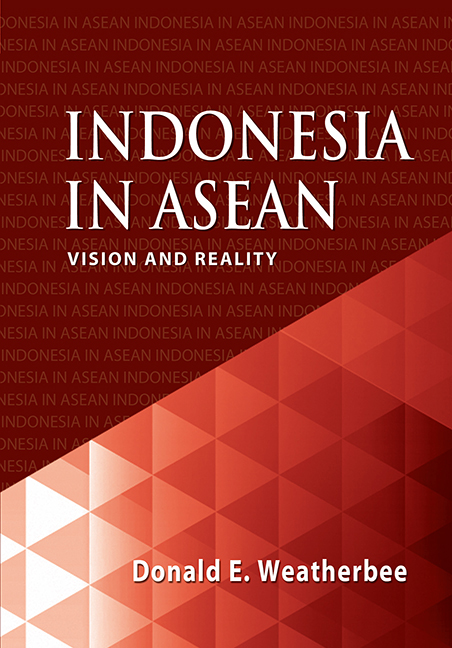Book contents
- Frontmatter
- Contents
- Editorial Note
- Acknowledgements
- About the Author
- Introduction
- I The Visible Indonesia
- II Indonesian Policy Foundations
- III Democracy in Indonesian Foreign Policy
- IV Islam in Indonesian Foreign Policy
- V Indonesia, ASEAN and Regional Political Stability and Security
- Conclusion
- Addendum
- End Notes
- References
- Frontmatter
- Contents
- Editorial Note
- Acknowledgements
- About the Author
- Introduction
- I The Visible Indonesia
- II Indonesian Policy Foundations
- III Democracy in Indonesian Foreign Policy
- IV Islam in Indonesian Foreign Policy
- V Indonesia, ASEAN and Regional Political Stability and Security
- Conclusion
- Addendum
- End Notes
- References
Summary
At an earlier point in this paper four questions were posed with respect to Indonesia's relationship to ASEAN, particularly in the framework of the ASEAN Political and Security Community. The questions were related to Indonesia's self-image as the leader of ASEAN. The first question was in what direction Indonesia wanted ASEAN to go. As has been discussed, for at least a decade Indonesia has sought to transfer its experience in democratization to ASEAN. It also has tried to move the grouping towards a strategic coherence and political solidarity that would be necessary to make ASEAN an effective actor in shaping its regional security environment. In short, Indonesia, of all the ASEAN states, has tried the most to make real the pledges and promises of the ASEAN Charter and the Bali Concord II's vision of community. Indonesia has kept ASEAN upfront in its foreign policy even at the cost of compromising its own national foreign policy interests.
Indonesia has been singularly unsuccessful in putting an Indonesian stamp on ASEAN. If anything, it is just the opposite. The ASEAN stamp has been put on Indonesia in terms of the dilution of the bebas dan aktif quality of its foreign policy in deference to lowest-common-denominator consensus and inaction. This answers the second question. As the pages above have shown, ASEAN as an organization does not follow Indonesia's lead in any real sense. While ASEAN may be willing to give expression to Indonesia's intellectual or conceptual ideas and values in the ASEAN boiler-plate prose of declarations and resolutions, the member nations are at no risk that they will be forced to adhere to them or put what is promised into practice. It serves only, as Narine (2012) argued, to add a surface credibility and legitimacy to ASEAN's image. ASEAN's organizational structure, internal politics, and members’ external linkages are such that no country can really lead ASEAN in the sense of directing its course of action to conform to a particular country's interests, real or ideal.
To answer the question of whether soft power is enough, certainly soft power cannot prevail in ASEAN when the least powerful hold the trump card of preventing a consensus. This does not mean that Indonesia's soft power capabilities are unavailing.
- Type
- Chapter
- Information
- Indonesia in ASEANVision and Reality, pp. 83 - 90Publisher: ISEAS–Yusof Ishak InstitutePrint publication year: 2013

